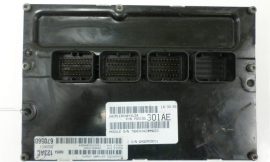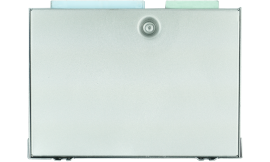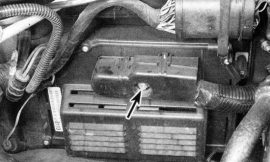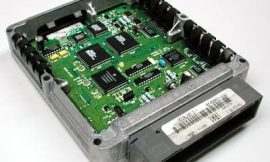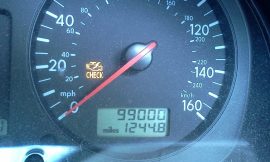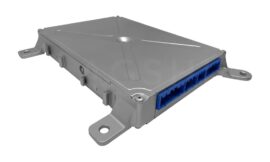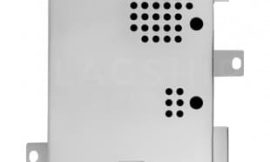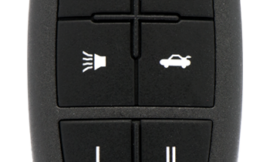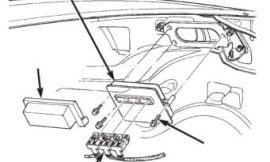Last updated on January 6th, 2025 at 03:54 pm
If you’re an Acura owner, you know that your car’s Engine Control Unit (ECU) is a critical component of its performance. This computer module controls everything from ignition timing to fuel injection, and without it functioning properly, your car won’t run smoothly. But how do you know when it’s time to replace your ECU?
Common Symptoms Indicating a Faulty Acura ECU
There are several symptoms that can signal a need to replace your Acura ECU:
- Check Engine Light: This is one of the first signs of ECU trouble. The check engine light may come on and stay on, even after addressing the issue indicated by the error code.
- Poor Performance: If your Acura isn’t performing as it usually does, this could be a sign of ECU problems. This could be anything from difficulty starting the engine, to reduced fuel efficiency, to a lack of power when accelerating.
- Unexpected Gear Shifts: If your vehicle starts to shift gears unexpectedly or refuses to shift at all, this could be due to a malfunctioning ECU.
- Engine Stalling or Misfiring: An ECU issue can cause your Acura to stall or misfire, which can be dangerous when driving at high speed or in heavy traffic.
These symptoms can greatly affect your driving experience. Your Acura may become unreliable, its performance may deteriorate, and it may consume more fuel. In the worst case, it can lead to unsafe driving conditions. Remember, a prompt response to these signs can save you from potential dangers and costly repairs in the future.
Diagnostic Steps for Acura Owners
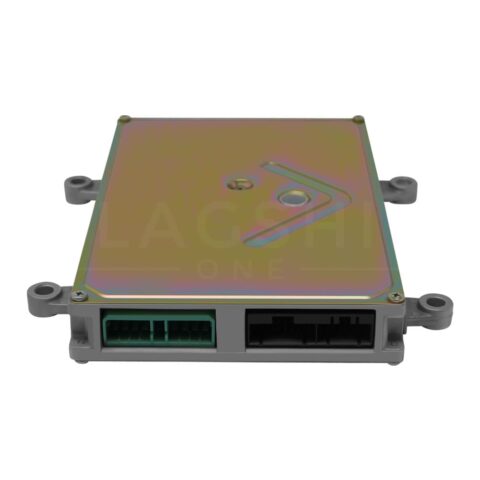
Before attempting to replace your Acura ECU, it’s recommended to run a diagnostic check. Here’s how:
Using Acura-specific Diagnostic Tools:
Acura has a specific diagnostic tool known as the HDS (Honda Diagnostic System). This tool collects data from your vehicle and uses it to identify any issues. To use the HDS tool, connect it to the OBD (On-Board Diagnostic) port in your vehicle, which is typically located under the driver’s side dashboard.
What Acura-specific Error Codes to Look For:
The HDS tool will generate error codes, which can help pinpoint the problem. Some Acura-specific error codes that point towards a faulty ECU include P0600 (Serial Communication Link), P0601 (Internal Control Module Memory Check Sum Error), and P0605 (Internal Control Module Read Only Memory Error). If any of these codes appear, it could indicate that your ECU requires replacement.
When to Consult an Acura Specialist
While Acura owners are often able to handle the basic diagnostic steps and interpret the error codes, there are situations where it is prudent to consult an Acura specialist:
Persistent Error Codes:
If you have addressed the issue indicated by a specific error code, but the code keeps returning, this could indicate more complex ECU problems that require an expert’s attention.
Inconsistent Vehicle Behavior:
Inconsistent or erratic vehicle behaviors that aren’t resolved by an ECU replacement may point to other underlying issues. If your Acura continues to exhibit poor performance, unexpected gear shifts, or engine stalling, consult an Acura specialist.
Lack of Specific Tool:
If you do not have access to a Honda Diagnostic System (HDS), an Acura specialist will be able to perform the diagnostic for you. They have access to the latest diagnostic tools and can interpret the results accurately.

Complex Error Codes:
Some Acura-specific error codes are more complex and may indicate multiple potential problems. An Acura specialist can help you understand these codes and suggest the best course of action.
Remember, consulting a specialist ensures that your Acura is in the best hands and guarantees top-notch performance and safety.
In conclusion, identifying a failing ECU in your Acura involves being vigilant about common symptoms and proactive in diagnostics. Look out for symptoms such as a persistent check engine light, poor performance, unexpected gear shifts, and engine stalling or misfiring. Utilizing Acura-specific diagnostic tools like the HDS can provide valuable insight into potential ECU issues, especially if error codes P0600, P0601, or P0605 appear in the diagnostic results. In cases of persistent error codes, inconsistent vehicle behavior, lack of specific diagnostic tools, or complex error codes, consulting an Acura specialist is highly recommended. By staying alert to these signs, Acura owners can maintain vehicle performance and safety while avoiding costly future repairs.
Explore Our Selection of Acura ECUs
If it’s time to replace your Acura’s ECU, Flagship One, Inc. is here to help. We offer a wide range of Acura ECUs that will fit your vehicle perfectly. No need to worry about compatibility—we’ve got that covered. Our team of experts is dedicated to ensuring that we provide only top-quality control modules. We understand how crucial the ECU is to your Acura’s performance, and that’s why we supply nothing but the best. So why wait? Browse our selection of Acura ECUs today and experience the difference in your Acura’s performance.
DIAGNOSTIC TROUBLE CODES THAT RELATES TO THE PCM
Diagnostic Trouble Codes (DTCs) are codes that are stored by a vehicle’s on-board diagnostic (OBD) system when it detects a fault with the vehicle’s powertrain system.
- P0100: Mass or Volume Air Flow Circuit Malfunction
- P0101: Mass or Volume Air Flow Circuit Range/Performance
- P0102: Mass or Volume Air Flow Circuit Low Input
- P0103: Mass or Volume Air Flow Circuit High Input
- P0110: Intake Air Temperature Circuit Malfunction
- P0113: Intake Air Temperature Sensor 1 Circuit High
- P0172: System Too Rich (Bank 1)
- P0120: Throttle/Pedal Position Sensor/Switch “A” Circuit Malfunction
- P0130: Oxygen Sensor Circuit Malfunction (Bank 1, Sensor 1)
- P0131: Oxygen Sensor Circuit Range/Performance (Bank 1, Sensor 1)
- P0132: Oxygen Sensor Circuit High Voltage (Bank 1, Sensor 1)
- P0133: Oxygen Sensor Circuit Slow Response (Bank 1, Sensor 1)
- P0134: Oxygen Sensor Circuit Intermittent (Bank 1, Sensor 1)
- P0135: Oxygen Sensor Circuit Malfunction (Bank 1, Sensor 2)
- P0136: Oxygen Sensor Circuit Range/Performance (Bank 1, Sensor 2)
- P0137: Oxygen Sensor Circuit Low Voltage (Bank 1, Sensor 2)
- P0138: Oxygen Sensor Circuit High Voltage (Bank 1, Sensor 2)
- P0139: Oxygen Sensor Circuit Intermittent (Bank 1, Sensor 2)
- P0140: Oxygen Sensor Circuit Malfunction (Bank 2, Sensor 1)
- P0141: Oxygen Sensor Circuit Range/Performance (Bank 2, Sensor 1)
- P0142: Oxygen Sensor Circuit Low Voltage (Bank 2, Sensor 1)
- P0143: Oxygen Sensor Circuit High Voltage (Bank 2, Sensor 1)
- P0144: Oxygen Sensor Circuit Intermittent (Bank 2, Sensor 1)
Here is a list of some diagnostic trouble codes (DTCs) that begin with the letter “U” and could potentially indicate a fault with the powertrain control module (PCM) in a vehicle:
- U0100: Lost Communication with Engine Control Module/Powertrain Control Module
- U0101: Lost Communication with Transmission Control Module
- U0102: Lost Communication with Transfer Case Control Module
- U0103: Lost Communication with Throttle Actuator Control Motor Circuit
- U0104: Lost Communication with Throttle Actuator Control Motor Circuit Range/Performance
- U0105: Lost Communication with Throttle Actuator Control Motor Circuit Low
- U0106: Lost Communication with Throttle Actuator Control Motor Circuit High
- U0107: Lost Communication with Throttle Actuator Control Motor Circuit Intermittent
- U0108: Lost Communication with Throttle Actuator Control Motor Circuit Open
- U0109: Lost Communication with Throttle Actuator Control Motor Circuit Short to Ground
- U0110: Lost Communication with Throttle Actuator Control Motor Circuit Short to Battery
- U0111: Lost Communication with Throttle Actuator Control Motor Circuit Short to Power
- U0112: Lost Communication with Throttle Actuator Control Motor Circuit Short to Ground
- U0113: Lost Communication with Throttle Actuator Control Motor Circuit Short to Battery
- U0114: Lost Communication with Throttle Actuator Control Motor Circuit Short to Power
- U0115: Lost Communication with Throttle Actuator Control Motor Circuit Failure
- U0116: Lost Communication with Throttle Actuator Control Motor Circuit Range/Performance
Note: These codes are just a small sample and there are many other DTC codes that could potentially indicate a fault with the PCM. Additionally, the specific codes that are relevant will depend on the make and model of the vehicle. It is important to consult the vehicle’s service manual or a professional mechanic for more information about interpreting DTC codes.



